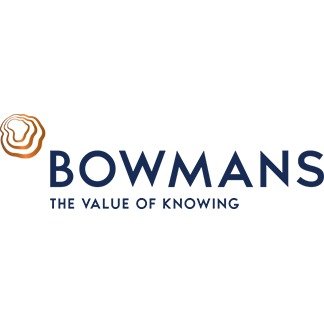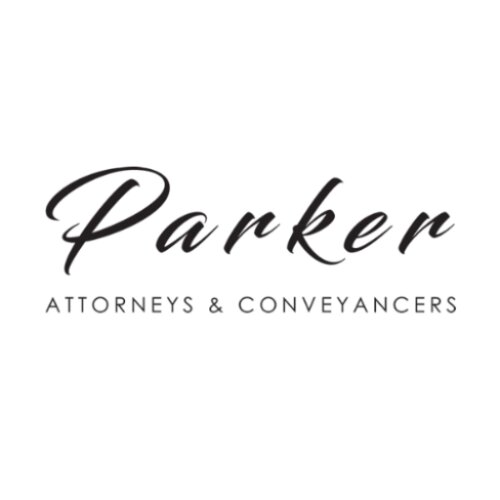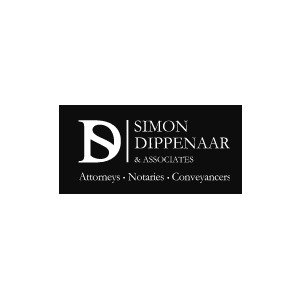Best Intellectual Property Lawyers in Cape Town
Share your needs with us, get contacted by law firms.
Free. Takes 2 min.
List of the best lawyers in Cape Town, South Africa
About Intellectual Property Law in Cape Town, South Africa
Intellectual Property (IP) law in Cape Town, South Africa, is a specialized area that ensures the protection of creations of the mind. These creations include inventions, literary and artistic works, symbols, names, images, and designs used in commerce. The city, as a hub of innovation and creativity, sees active participation in the IP sector, benefiting from South Africa's comprehensive legal framework governed by the Companies and Intellectual Property Commission (CIPC). Cape Town's vibrant tech and creative industries make it a significant center for IP activities.
Why You May Need a Lawyer
There are several instances where you may require the services of a lawyer specializing in Intellectual Property:
- Protecting a new invention or idea and seeking a patent.
- Establishing trademarks for branding purposes.
- Securing copyrights for original works such as music, literature, and art.
- Navigating IP disputes or infringement claims.
- Commercializing intellectual property through licensing deals.
- Protecting business trade secrets.
In these instances, a lawyer can help you understand your rights, draft necessary documentation, and represent you in any legal proceedings.
Local Laws Overview
South Africa has a robust legal framework for IP rights, aligning with international treaties such as the TRIPS Agreement. Key aspects of local IP laws include:
- The Patents Act: Governs the registration and protection of patents.
- The Trade Marks Act: Covers the registration of trademarks for goods and services.
- The Copyright Act: Protects original expressive works against unauthorized use.
- The Designs Act: Deals with the registration of aesthetic and functional designs.
- The Performers’ Protection Act: Safeguards the rights of performers.
Understanding these laws is critical for IP holders to ensure full protection and enforcement of their intellectual property rights.
Frequently Asked Questions
What constitutes a patentable invention in South Africa?
A patentable invention must be new, involve an inventive step, and be capable of being used or applied in trade, industry, or agriculture. It should not be excluded by the Patents Act, such as discoveries or scientific theories.
How long does trademark protection last in South Africa?
In South Africa, a registered trademark lasts for 10 years from the filing date and can be renewed indefinitely for additional 10-year periods, provided it remains in use.
What is the process for registering a copyright?
Unlike patents and trademarks, copyright protection is automatic in South Africa. This means that once an original work is created and expressed in a tangible form, it is protected by copyright without the need for registration.
Can I protect my business logo internationally?
Yes, by applying for international trademark protection through the Madrid Protocol, which facilitates trademark registration across member countries.
What actions can I take if my IP rights are infringed?
Consult a lawyer to explore legal options, which may include sending cease-and-desist letters, seeking damages, or obtaining injunctions through court action.
Is software patentable in South Africa?
Software per se is not patentable under South African law, but it can be protected if it forms part of a patentable invention, showing a technical effect or solution.
How are domain names regulated?
Domain names in South Africa can be registered through the ZA Central Registry and disputes are handled through the Alternative Dispute Resolution regulations.
What is a non-disclosure agreement (NDA) and when should I use one?
An NDA is a legal contract protecting confidential information shared between parties. It is crucial when discussing any business ventures or potential collaborations to safeguard proprietary information.
How can I commercialize my IP?
Consider licensing agreements, joint ventures, or franchising arrangements. An IP attorney can guide you in drafting such agreements to optimize and protect your commercial interests.
How does the counterfeiting crackdown impact my IP rights?
South Africa takes counterfeiting seriously, with customs enforcement and legal routes available to IP holders to protect against counterfeit goods. Registering your IP rights ensures you can leverage these protections.
Additional Resources
For those seeking information or assistance, the following resources can be helpful:
- Companies and Intellectual Property Commission (CIPC): The official body for IP registration and information.
- South African Institute of Intellectual Property Law (SAIIPL): Offers a directory of qualified IP attorneys and resources.
- Export Credit Insurance Corporation (ECIC): Provides insights into international IP considerations for exporters.
- World Intellectual Property Organization (WIPO): An international resource offering IP rights information and global protection mechanisms.
Next Steps
If you need legal assistance in Intellectual Property, consider the following steps:
- Identify your specific legal needs, whether it be protection, commercialization, or dispute resolution.
- Research and contact an IP attorney or law firm in Cape Town, focusing on their expertise and experience in cases similar to yours.
- Prepare essential documentation and information regarding your IP assets for an initial consultation.
- Discuss your options thoroughly with your attorney to determine the best course of action tailored to your needs.
Taking proactive steps in securing legal advice can provide peace of mind and ensure that your intellectual assets are adequately protected and managed.
Lawzana helps you find the best lawyers and law firms in Cape Town through a curated and pre-screened list of qualified legal professionals. Our platform offers rankings and detailed profiles of attorneys and law firms, allowing you to compare based on practice areas, including Intellectual Property, experience, and client feedback.
Each profile includes a description of the firm's areas of practice, client reviews, team members and partners, year of establishment, spoken languages, office locations, contact information, social media presence, and any published articles or resources. Most firms on our platform speak English and are experienced in both local and international legal matters.
Get a quote from top-rated law firms in Cape Town, South Africa — quickly, securely, and without unnecessary hassle.
Disclaimer:
The information provided on this page is for general informational purposes only and does not constitute legal advice. While we strive to ensure the accuracy and relevance of the content, legal information may change over time, and interpretations of the law can vary. You should always consult with a qualified legal professional for advice specific to your situation.
We disclaim all liability for actions taken or not taken based on the content of this page. If you believe any information is incorrect or outdated, please contact us, and we will review and update it where appropriate.
Browse intellectual property law firms by service in Cape Town, South Africa
Cape Town, South Africa Attorneys in related practice areas.














